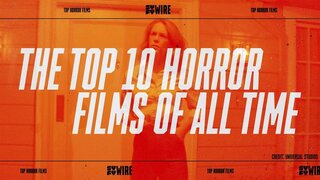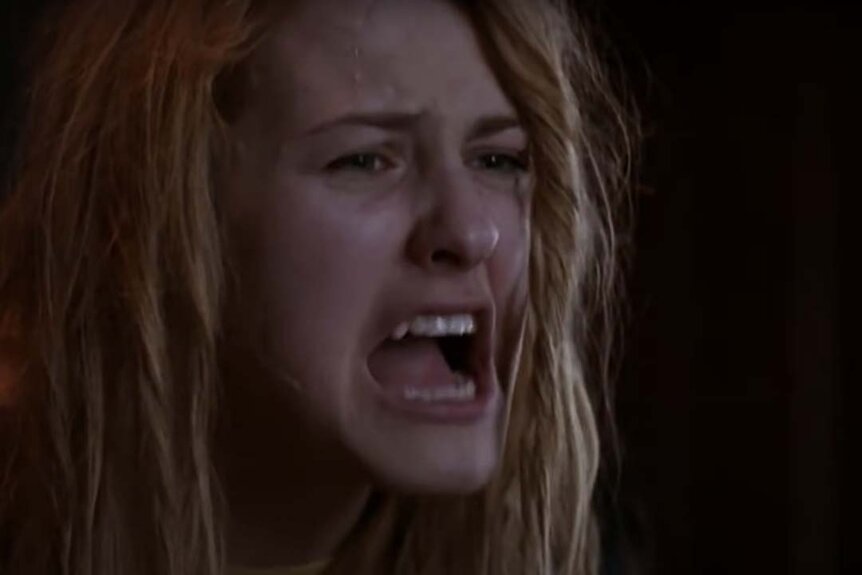Create a free profile to get unlimited access to exclusive videos, sweepstakes, and more!
Why Rob Zombie's Halloween Films Are an Underrated Watch This Spooky Season
Rob Zombie made Halloween his own, in more ways than one.
I will admit that, despite being a Halloween franchise completist, it took me an embarrassingly long time to get around to watching Rob Zombie's take on the Michael Myers story. It wasn't that I didn't like any of Zombie's work, but something about remaking John Carpenter and Debra Hill's original classic always just felt off to me, and I'm guessing I'm not alone in that. Despite their box office success at the time they were released, Zombie's two Halloween films have sort of faded into the background of the franchise, particularly now that we've got a whole new trilogy of stories courtesy of director David Gordon Green and original star Jamie Lee Curtis.
That's a shame, because despite my late adoption of their particular offerings, I'm here to tell you that Zombie's films have something dynamic to offer not just horror fans, but specifically Halloween franchise fans. There is genuine power and brutal beauty in both of these movies, and since they're both streaming on Peacock right now, you can find out for yourself this October.
How Rob Zombie's Halloween Shows Reverence for the Classics
The good news here is that, from the beginning, we were in reverent hands when it comes to Zombie. The man is a horror fan through and through, someone who understands the genre and, by extension, understood when it came time to remake Halloween that he couldn't just redo all of Carpenter and Hill's original dance steps. But he also couldn't simply abandon the threads of the story that so many fans knew and loved. A particular line had to be walked, a merging of sensibilities and stories. So, Zombie kept character names, situations, and certain key kills from the original film, then decided to spend more time on that opening scene from Carpenter's film, the one that establishes Michael as a force of evil in the world.
RELATED: Rob Zombie's Insane Horror Movies, Ranked
In Carpenter and Hill's version, Michael Myers simply puts on a mask and stabs his sister one night when he's a little boy. We get nothing more from him, other than Dr. Loomis's own musings on why Michael stopped talking and interacting after that night. But the thing is, Michael was at least a somewhat ordinary child at some point, right? He spent several years growing up at home, living a regular life, just existing without violence. So what caused the break? This is the question Zombie sets out to answer, and while he explores it from certain predictable places (bad home life, bullying, etc.), he also leaves a certain intrigue and mystique that's both a tribute to and extension of the original film.
Through the first Zombie Halloween, we see Michael's obsession with masks as an extension of whatever dark force inhabits him. He makes dozens of them, to the point that they line the walls of his room at the asylum where he's kept after his first killing spree. There's a clear meditation on a theme happening here, one that Carpenter's film only scratched the surface of: Is he making the masks to show us who he really is, or to hide who really is?
We don't actually get the answer, and that's part of what makes the first film in the Zombie duo such a solid re-imagining. Though its focus is much more on an origin story for Michael Myers than Carpenter's film, the origin story doesn't actually give us answers. We simply descend deeper into Michael's particular darkness, and even when it seems like the film is going to give us the solution to his particular evil, we're left wondering why this kid in this place is so driven to kill. It's a remarkable balancing act between new ideas and old tropes, and it gains even greater depth in the sequel.
Halloween II's Brutal Reckoning
For his follow-up film, Zombie again took certain key ingredients left over from the original Halloween sequel –– the immediate aftermath of the first film, Michael Myers rampaging through a hospital, and so on –– and morphed them into something new, something with a flavor that might remind you of future sequels like Halloween 4. In his first film, Zombie introduced us to Laurie Strode (Scout Taylor-Compton) and Michael's (Tyler Mane) mysterious fascination with her. In Halloween II, just as in the original films, that fascination is revealed to be the result of an unexpected family connection: She's his baby sister, spared and hidden away in the years after his first killings, and in the sequel, he's out to finally bring her down.
Or is he? In Zombie's version of events, Laurie is the one who finally shoots Michael at the end of the first film, not Dr. Loomis (Malcom McDowell, who's wonderfully twisted in his own way in these films), and it clearly has a psychological impact on her. As Michael continues his rampage, Laurie begins having visions not just of Michael's murders through her own eyes, but of a mother she never knew (Sheri Moon Zombie), and an urge she's never had to embrace before. By the end of the film, Laurie must meet this brutality head-on, not just through another confrontation with Michael, but through the reality of her past and what it means for her present. Laurie, you see, might be just as disturbed as her brother is.
It's an exciting and ultimately haunting new dynamic for the duo, one that never gets explored in a third film but nevertheless leaves the viewer chilled and, once again, full of questions. Is the entire Myers family cursed? Was Laurie always destined to be like Michael, or was she pushed there? Is violence a sickness passed from person to person? As with Michael's violent origins, Zombie shows us just enough to get us asking these questions, without ever providing definitive answers. It's a remarkably deft little piece of horror storytelling, and one that deserves to be talked about more.
And of course, on top of all of this, Zombie's Halloween films are just plain brutal in ways that even the latter-day sequels in the franchise never have been. Particularly in Halloween II, he pushes the violence to devastating levels, not just in terms of gore, but in terms of the kind of fight Michael's victims put up before they go. It's a remarkable exercise in horror storytelling on a scene-by-scene level, and while it's not for everyone, it's definitely something that gives Zombie's take on the slasher genre a certain edge.
So, if you want something different from the Halloween franchise this October, go back and give Zombie's films another look. They're rewarding in their own dark ways, and deserve much more attention than they usually get this time of year.
Halloween and Halloween II are now streaming on Peacock.
Originally published Oct 17, 2023.































